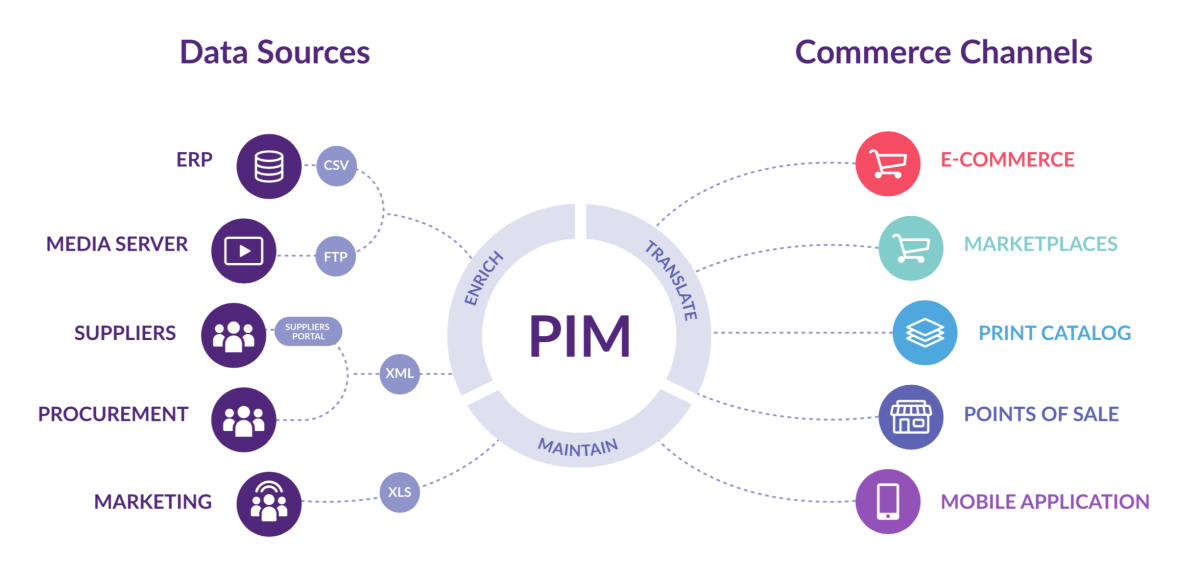Product Information Management (PIM) is a systematic approach to managing and centralizing product information within an organization. It involves collecting, organizing, enriching, and distributing product data to ensure consistency, accuracy, and efficiency in presenting and selling products across various sales channels, such as e-commerce websites, print catalogs, mobile apps, and more. PIM systems and processes are commonly used by businesses and retailers, particularly those with a large and diverse product catalog.
Here are key aspects and benefits of Product Information Management:
Centralized Data Repository: PIM systems provide a centralized database or repository where all product information is stored. This includes product descriptions, specifications, images, pricing, availability, and any other relevant data.
Data Enrichment: PIM allows organizations to enrich product data with additional information, such as marketing descriptions, translations, technical specifications, and multimedia assets (images, videos, PDFs, etc.). This helps create compelling product listings that attract and inform customers.
Consistency and Accuracy: By centralizing product data, PIM helps maintain consistency and accuracy across all sales channels. It ensures that the same product information is used consistently in online stores, printed catalogs, and other marketing materials.
Efficient Updates: PIM systems make it easier to update and manage product information. When changes occur, such as price adjustments or feature updates, these changes can be made in one place and automatically reflected across all relevant channels.
Multichannel Distribution: PIM enables businesses to seamlessly distribute product data to various sales channels, including websites, mobile apps, social media, marketplaces (e.g., Amazon, eBay), and physical stores.
Improved Time-to-Market: With streamlined data management, organizations can bring new products to market more quickly. This is crucial in fast-paced industries and for businesses that frequently introduce new products.
Enhanced Customer Experience: High-quality product information, including detailed descriptions and images, contributes to a better customer experience. Customers can make more informed purchase decisions, leading to increased trust and satisfaction.
Scalability: PIM systems are scalable, meaning they can accommodate growing product catalogs and expanding sales channels without significant disruptions.
Compliance: PIM systems can help businesses adhere to regulatory requirements, such as labeling laws, by ensuring that product information is accurate and compliant with relevant standards.
Analytics and Insights: PIM systems often include analytics tools that provide insights into how product data is performing across different channels, helping organizations make data-driven decisions.
Overall, Product Information Management plays a crucial role in modern commerce by helping businesses efficiently manage and distribute product data, ultimately contributing to improved sales, customer satisfaction, and competitive advantage.

